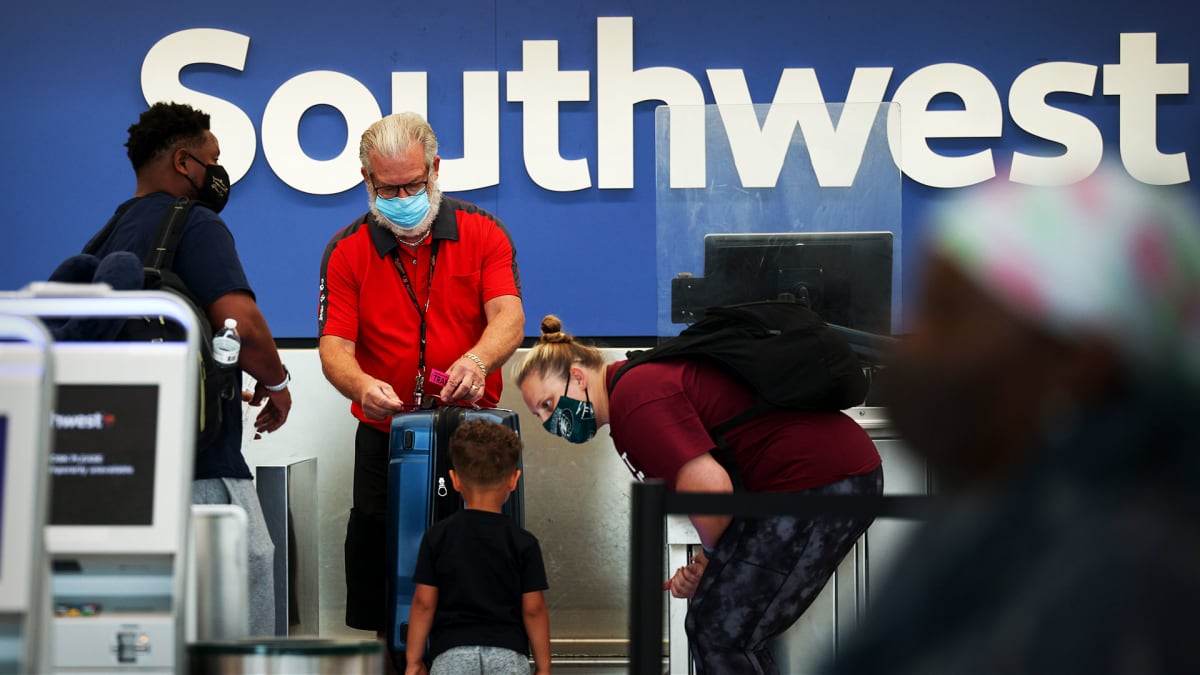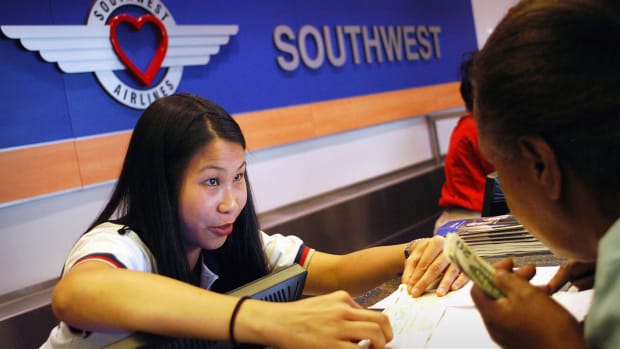
Southwest Airlines now publicly admits it has a problem -- really a few of them.
The airline's pilots have been vocal that its problems and back-end-systems-related issues have been well-known internally for years, but the company was forced to embrace those matters in the fallout from its holiday meltdown.
Basically, Southwest Airlines' (LUV) private issues went public when it stranded tens of thousands of passengers. At first, the airline tried to blame the weather, but the depth of the problem forced executives to acknowledge that its software simply could not keep up.
DON'T MISS: Southwest Airlines Slaps Passengers, Pilots in the Face
"This was just an unprecedented storm for everybody -- for all airlines," Southwest Chief Executive Bob Jordan said in an interview on ABC's Good Morning America. "The storm had an impact, but we had impacts beyond the storm that obviously impacted Southwest very differently."
That's a mild admission of guilt, given what the union representing the airline's pilots said in an open letter.
"Systemwide meltdowns at Southwest Airlines have been increasing in frequency and magnitude over the past 15 years. From the original Midway Meltdown (and then the second larger one 1/3/2014) to destroying our on-time-performance with the added 'virtual airframes' experiment to the 'router brownout' (2016) to the 'Jacksonville Center debacle' (Columbus Day weekend, October 2021) to what we are experiencing today," the letter declared.
Essentially, the union said that repeated failures made very clear that the system needed upgrading.
Now, Southwest has publicly admitted this and it's outlining how it plans to avert future disasters.

Image source: William Thomas Cain/Getty Images
Southwest Airlines Identifies Its Problems
Southwest Airlines has been working with the prominent aviation consultancy Oliver Wyman to develop "a three-part Tactical Action Plan to boost operational resiliency in key areas across the company," according to a news release.
In addition, the airline's existing five-year Operational Modernization Plan, which began in 2022, is underway and focuses on operational investments and organizational alignment to support customers and employees.
"We understand the root causes that led to the holiday disruption, and we're validating our internal review with the third-party assessment. Now, we expect to mitigate the risk of an event of this magnitude ever happening again," said Jordan.
"Work is well underway implementing action items to prepare for next winter -- with some items already completed."
Southwest Has a Plan to Fix Its Issues
Southwest presented its new plan at the recent J.P. Morgan Industrials Conference in New York. The airline also detailed its efforts in a news release.
- Accelerate Operational Investments: Ongoing implementation of tools and technology that allow for a greater pace of recovery during extreme events will be prioritized, and the airline is, currently, budgeted to spend more than $1.3 billion on investments, upgrades, and maintenance of information technology systems in 2023. For example, Crew Optimization software has been recently upgraded to address a functional gap that was revealed in December. Crew Scheduling and Customer phone systems also will be upgraded for better surge protection and efficiency during periods of high call volumes.
- Winter Operations: Challenges with infrastructure, winter equipment, and winter weather preparedness have been, or will be, addressed through various actions, including purchasing additional deicing trucks; securing additional deicing pads and deicing fluid capacity at key network locations; and purchasing more engine covers and engine heaters for cold weather operations.
- Cross-Team Collaboration: Actions have already been taken to align various Network Planning and Network Operations Control Teams under one senior leader for better execution of operational plans. Additionally, data on early-indicator dashboards has been enhanced to highlight key operational metrics, and the airline will better integrate aircraft and crew recovery decision-making and optimization.
Southwest wants to make clear to both passengers and employees that it's no longer ignoring its problems. That's a step forward for the airline.
"I'm confident in our path forward and truly believe our best days are ahead," said Chief Operating Officer Andrew Watterson.
These moves come alongside the airline sharing that it has been testing major changes to its boarding process. Those include allowing families to board together with kids up to age 13 (the current policy is age 6), improved stanchions in the boarding area, and playing music on the jet bridge to get passengers to move faster.







